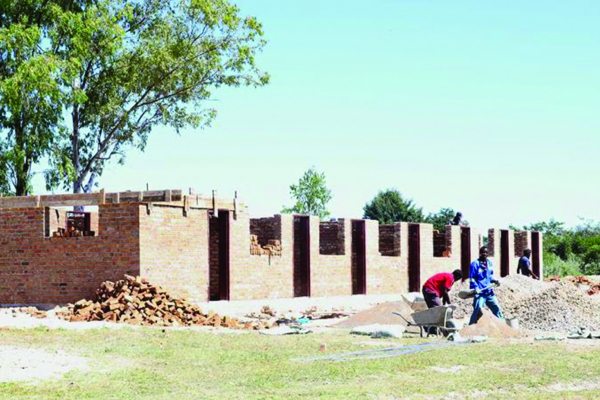
By TATIRA ZWINOIRA AT THE UNITED NATIONS IN NEW YORK
PRESIDENT Emmerson Mnangagwa says a total of 6 600 health posts will be constructed over the next five years in government’s political declaration to commit to universal health coverage.
Mnangagwa’s declaration came as part of 158 similar commitments from different countries at the United Nations General Assembly high-level meeting on universal health coverage (UHC) submitted yesterday.
This was part of commitments by world leaders towards a high-level United Nations Political Declaration on UHC launched at the ongoing UN General Assembly meeting.
“While we have made significant strides in ensuring that no one should travel more than 10km to reach a health service, some communities still have limited access to health facilities. My government is, therefore, constructing health posts, clinics and hospitals in remote areas to address this challenge. A total of
6 600 health posts will be constructed over the next five years,” Mnangagwa said in his declaration.
However, he said government’s efforts in achieving UHC was being hampered by targeted sanctions imposed on Zimbabwe.
“The current challenge is to modernise primary healthcare. Sadly, however, our efforts are being greatly hampered by the ruinous illegal economic sanctions imposed on our country,” he added.
- Chamisa under fire over US$120K donation
- Mavhunga puts DeMbare into Chibuku quarterfinals
- Pension funds bet on Cabora Bassa oilfields
- Councils defy govt fire tender directive
Keep Reading
According to the Second Report of the Parliament Portfolio Committee on Health and Child Care earlier this month, the major concern in the health sector remained shortages of drugs.
In the report, Zimbabwe’s public health institutions have been experiencing severe shortages of medicines and drugs as well as other essential products.
This has left the general public at the mercy of the private sector, which introduced a three-tier pricing system.
“This is in the form of the United States dollar (US$), equivalent of the US$ in bond (ZWL dollar) and demand of a mark-up percentage on products purchased through (mobile money transfer platorm) EcoCash and swipe. These demands are beyond the reach of an average citizen in Zimbabwe, let alone the poor and vulnerable population in the country,” the report reads in part.
As such, in his declaration, Mnangagwa announced that government launched a Health Financing Policy in 2018 aimed at meeting some of the challenges in the sector.
“The policy is aimed at reinvigorating our health delivery system through robust and sustainable domestic health funding. In addition to the Aids levy, my country has introduced a Health Levy, which is a 10% tax on mobile data usage, 5% of which is ring-fenced for health,” he said.
“Zimbabwe has also embarked on setting up a National Health Insurance policy, which will help improve health access to many more people, especially those in the informal sector. Our programmes, prioritising maternal, neonatal and child health, have seen remarkable increases in access to basic quality health care services.”
In his remarks, UN secretary-general Antonio Guterres said making UHC a reality by 2030 depended first and foremost on bold national leadership.
“Many countries are on the path towards achieving health for all by 2030. Others will need to accelerate their efforts so that no country, community or person is left behind,” he said.











